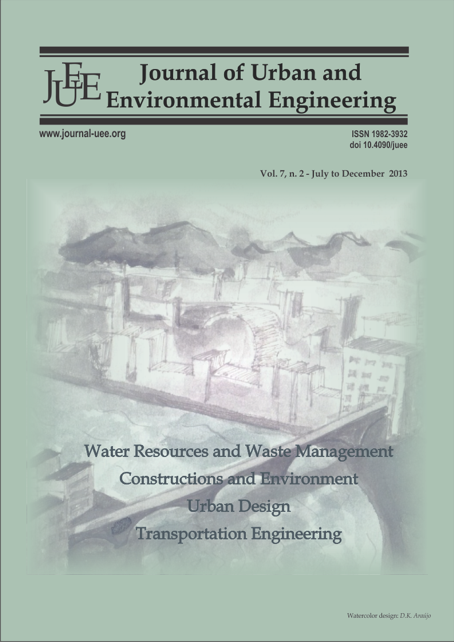AN EXPERIMENTAL EVALUATION OF SUSTAINABLE DRAINAGE SYSTEMS
DOI:
https://doi.org/10.4090/juee.2013.v7n2.206-214Keywords:
vegetated ponds, road runoff, road salts, pollution, SuDS, sorption isotherm modelsAbstract
This paper investigates the behaviour of certain water and sediment quality indicators of a vegetated detention pond system located at Waterlooville, Hampshire, UK. The period of study was 2 years (March 2011-March 2013) with sampling carried out once a month. Statistical analysis was performed using Minitab™. The aim of the study was to examine the changes in quality of various constituents with time and possible linear associations between them. Pond sediments and pond water quality were monitored for a range of variables at each monthly visit. Results indicate that the system demonstrates low levels of pollution while not having a direct impact on the oxygen balance of the receiving water-body. Oxygen demanding substances along with suspended matter and certain metals/elements were found to accumulate in the system with time. Significant linear associations were observed for road salts (containing Na, Cl, Mg) and certain pollutants, suggesting that road salts have a major impact on SuDS water/sediment quality. Sorption characteristics of specific metals were also evaluated by means of adsorption isotherm equations. Three widely used sorption isotherms were employed in this study. It was found that the sorption behaviour of metals is highly variable. This study highlights the dynamic nature of vegetated ponds and the importance of understanding the behaviour of different pollutants for SuDS design.Downloads
Download data is not yet available.
Downloads
Published
2013-12-08
Issue
Section
Articles




